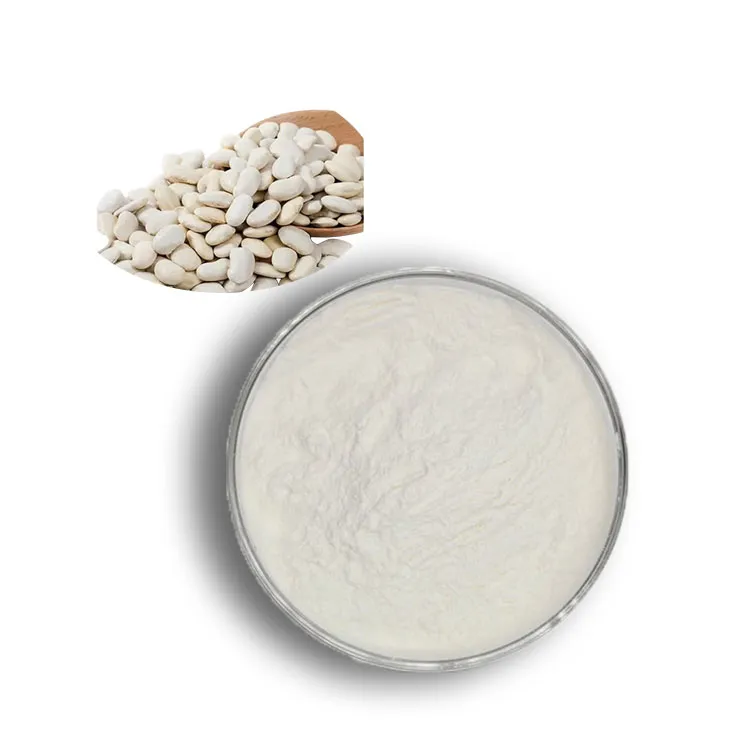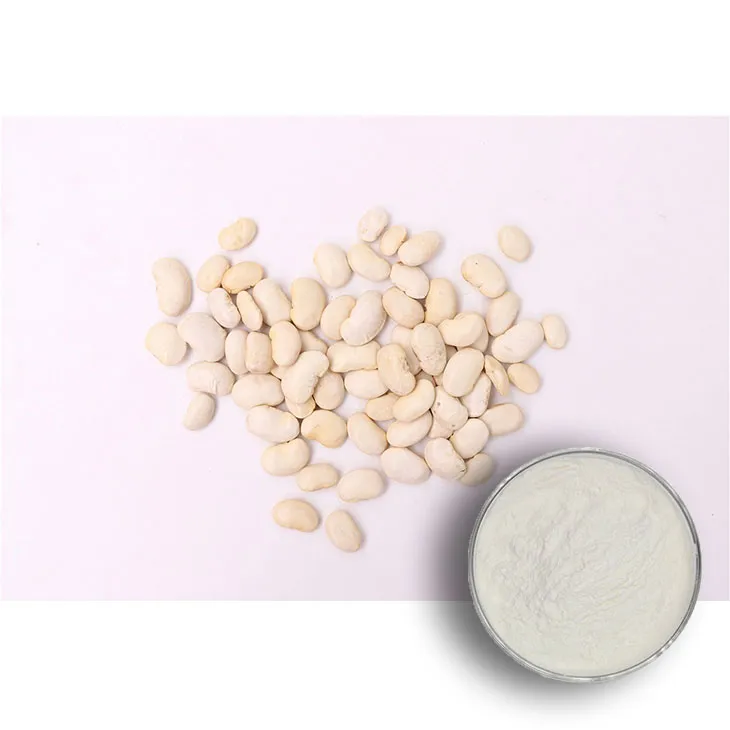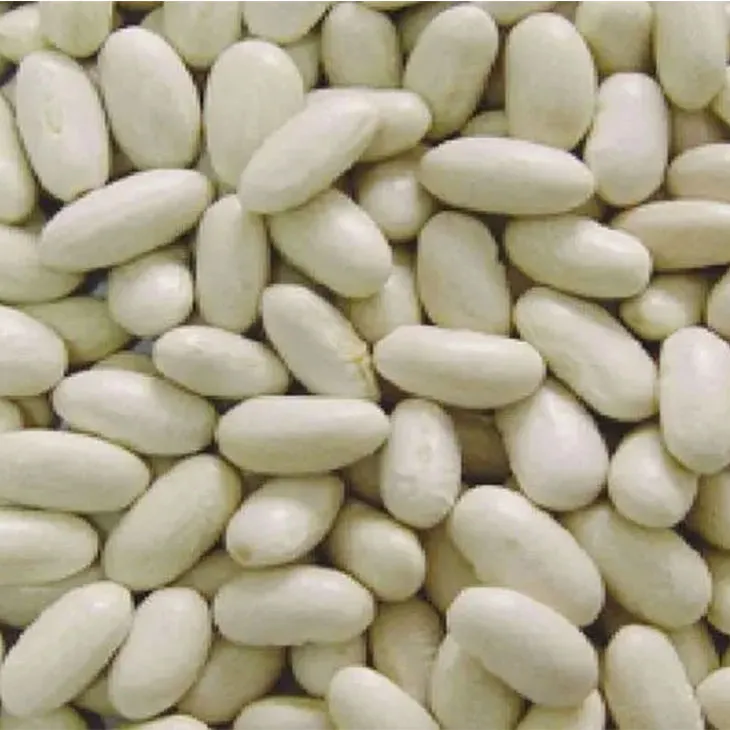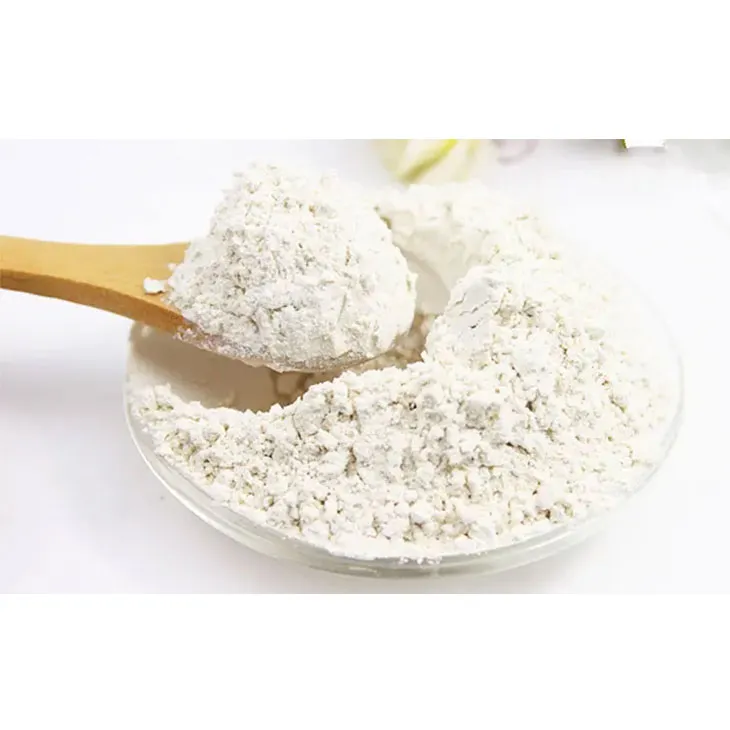- 0086-571-85302990
- sales@greenskybio.com
Kidney bean extract.
2024-11-13

1. Introduction to Kidney Beans
Kidney beans are a staple in many diets around the world. These legumes are not only a great source of nutrition but also serve as the origin of Kidney Bean Extract. Kidney beans are known for their distinct shape, resembling a kidney, which gives them their name. They are rich in proteins, fibers, vitamins, and minerals, making them a valuable addition to a balanced diet. The extraction process of Kidney Bean Extract aims to isolate and concentrate the bioactive compounds present in these beans, which have a wide range of potential applications.

2. Bioactive Compounds in Kidney Bean Extract
The most notable bioactive compound in kidney bean extract is phytohemagglutinin. This compound has been the subject of extensive research due to its diverse properties.
2.1 Phytohemagglutinin's Structure and Properties
Phytohemagglutinin is a type of lectin, a protein that can bind to specific carbohydrate molecules. Its unique structure allows it to interact with various cellular components. It has the ability to agglutinate red blood cells, which was one of the first properties discovered. However, its significance extends far beyond this initial observation.

3. Health - Related Applications of Kidney Bean Extract
3.1 Blood - Sugar Regulation
One of the most promising applications of kidney bean extract in the field of health is its potential role in blood - sugar regulation. The way it affects carbohydrate metabolism is of particular interest. By interacting with enzymes involved in the breakdown and absorption of carbohydrates, kidney bean extract may help to slow down the release of glucose into the bloodstream. This can be beneficial for individuals with diabetes or those at risk of developing the condition. For example, in some in - vitro studies, it has been shown that certain components of the extract can inhibit the activity of alpha - amylase, an enzyme responsible for breaking down starch into glucose. This inhibition can lead to a more gradual and controlled release of glucose, preventing sudden spikes in blood - sugar levels.
3.2 Antioxidant Properties
Kidney bean extract also possesses antioxidant properties. Oxidative stress is a major factor in the development of various diseases, as it can cause damage to cells, proteins, and DNA. The antioxidants in kidney bean extract can scavenge free radicals, which are highly reactive molecules that contribute to oxidative stress. These antioxidants include phenolic compounds and flavonoids. By neutralizing free radicals, the extract helps to protect cells from damage. In animal studies, it has been observed that a diet supplemented with kidney bean extract can lead to a reduction in markers of oxidative stress, such as malondialdehyde levels in tissues. This suggests that the extract may have a role in preventing or mitigating the effects of oxidative - stress - related diseases, such as cardiovascular diseases and certain cancers.

4. Cosmetic Applications of Kidney Bean Extract
4.1 Skin - Firming and Anti - Aging
In the world of cosmetics, kidney bean extract has shown great potential. One of its key applications is in skin - care products for skin - firming and anti - aging. The extract can stimulate the production of collagen, a protein that is essential for maintaining the elasticity and firmness of the skin. As we age, the production of collagen naturally declines, leading to the formation of wrinkles and sagging skin. By promoting collagen synthesis, kidney bean extract can help to improve the skin's texture and reduce the appearance of fine lines and wrinkles. In addition to collagen production, the extract may also have other beneficial effects on the skin. For example, it may help to improve skin hydration by enhancing the skin's barrier function. This can result in a more youthful and radiant complexion.

5. Agricultural Applications of Kidney Bean Extract
5.1 Potential as a Natural Pesticide
Research is currently underway to explore the potential of kidney bean extract as a natural pesticide. Some of the bioactive compounds in the extract, such as phytohemagglutinin, may have insecticidal properties. These compounds can interfere with the digestive systems or nervous systems of insects, thereby reducing their populations. For example, in laboratory tests, it has been found that extracts applied to certain pest insects can cause mortality or reduced feeding behavior. This offers a more environmentally friendly alternative to synthetic pesticides, which can have negative impacts on non - target organisms and the environment.
5.2 Growth Regulator for Plants
Kidney bean extract may also function as a growth regulator for plants. It could potentially influence plant growth and development by interacting with plant hormones or signaling pathways. For instance, it may stimulate root growth, which is crucial for plant nutrient uptake and overall health. In some preliminary studies, plants treated with kidney bean extract showed enhanced root development compared to untreated plants. This could have important implications for agriculture, especially in areas where improving plant growth and productivity is a priority.
6. Challenges and Future Directions
Despite the numerous potential applications of kidney bean extract, there are also some challenges that need to be addressed.
6.1 Standardization of Extract
One of the main challenges is the standardization of the extract. Since the composition of kidney bean extract can vary depending on factors such as the variety of kidney beans used, the extraction method, and the growing conditions of the beans, it is difficult to ensure consistent quality and potency. This can pose a problem for both its use in health and cosmetic products and its evaluation in scientific research. To overcome this challenge, more research is needed to develop standardized extraction protocols and quality control methods.
6.2 Safety and Toxicity
Another important consideration is the safety and toxicity of kidney bean extract. While it has shown potential benefits, it is essential to determine the appropriate dosages and potential side effects. Phytohemagglutinin, in particular, can be toxic in high concentrations. Therefore, further studies are required to establish safe levels of consumption or application. In addition, long - term studies are needed to assess any potential cumulative effects on human health or the environment.
6.3 Commercialization and Marketability
The commercialization and marketability of kidney bean extract also present challenges. Although there is growing interest in natural products, it can be difficult to compete with established synthetic products in the market. To make kidney bean extract more commercially viable, research is needed to develop cost - effective extraction methods and to create innovative product formulations. Additionally, consumer education about the benefits of kidney bean extract is crucial for increasing its market acceptance.
7. Conclusion
In conclusion, kidney bean extract is a truly remarkable natural substance with a wide range of potential applications in health, cosmetics, and agriculture. The bioactive compounds present in the extract, such as phytohemagglutinin, offer unique properties that can be harnessed for various purposes. However, further research is required to overcome the challenges associated with its standardization, safety, and commercialization. With continued investigation and development, kidney bean extract has the potential to become an important ingredient in a variety of products, contributing to improved health, beauty, and agricultural sustainability.
FAQ:
What are the main bioactive compounds in kidney bean extract?
One of the main bioactive compounds in kidney bean extract is phytohemagglutinin. There may also be other compounds that contribute to its various properties such as antioxidant and carbohydrate - metabolism - affecting capabilities.
How does kidney bean extract contribute to blood - sugar regulation?
Kidney bean extract may contribute to blood - sugar regulation by affecting carbohydrate metabolism. However, the exact mechanisms are still under research, but it is thought to interact with the body's processes related to breaking down and using carbohydrates.
What are the antioxidant benefits of kidney bean extract?
The antioxidant properties of kidney bean extract can combat oxidative stress in the body. Oxidative stress can cause damage to cells, and the antioxidants in the extract help prevent this damage, thus potentially contributing to overall health.
How can kidney bean extract be used in cosmetics?
In cosmetics, kidney bean extract can be used in skin - care products. It has the ability to stimulate collagen production, which helps with skin firming and anti - aging, making it a valuable ingredient in such products.
Is kidney bean extract already used as a natural pesticide?
As of now, research is being carried out to explore its potential as a natural pesticide or growth regulator for plants. So, it is not yet widely used as a natural pesticide, but there is promising research in this area.
Related literature
- Bioactive Compounds in Kidney Beans and Their Potential Health Benefits"
- "The Role of Kidney Bean Extract in Cosmetic Applications"
- "Kidney Bean Extract: A Promising Natural Pesticide? Research Updates"
- ▶ Hesperidin
- ▶ Citrus Bioflavonoids
- ▶ Plant Extract
- ▶ lycopene
- ▶ Diosmin
- ▶ Grape seed extract
- ▶ Sea buckthorn Juice Powder
- ▶ Fruit Juice Powder
- ▶ Hops Extract
- ▶ Artichoke Extract
- ▶ Mushroom extract
- ▶ Astaxanthin
- ▶ Green Tea Extract
- ▶ Curcumin
- ▶ Horse Chestnut Extract
- ▶ Other Product
- ▶ Boswellia Serrata Extract
- ▶ Resveratrol
- ▶ Marigold Extract
- ▶ Grape Leaf Extract
- ▶ New Product
- ▶ Aminolevulinic acid
- ▶ Cranberry Extract
- ▶ Red Yeast Rice
- ▶ Red Wine Extract
-
Aminolevulinic acid
2024-11-13
-
Lemon Juice Powder
2024-11-13
-
Rose Hip Extract
2024-11-13
-
Saw Palmetto Extract
2024-11-13
-
Green Tea Extract
2024-11-13
-
Diosmin
2024-11-13
-
Lily extract
2024-11-13
-
Curcumin
2024-11-13
-
Purple Sweet Potato Extract
2024-11-13
-
Red Date Extract
2024-11-13





















